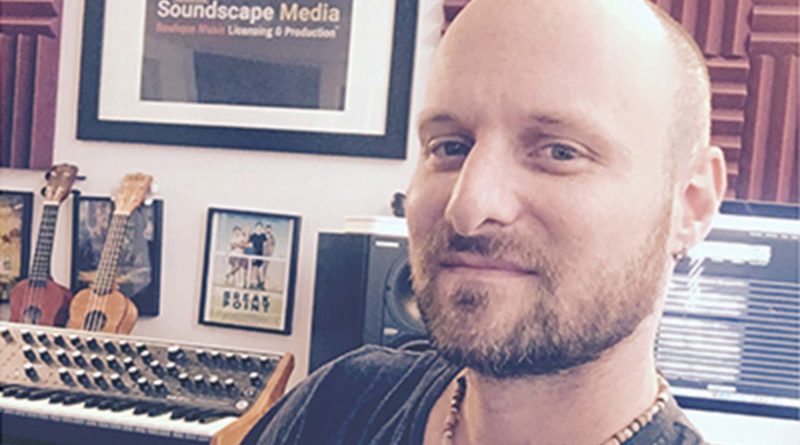Jason Greenberg – Soundscape.io
It was kind of heavenly.
Every day, Jason Greenberg drove into Malibu with the ocean on one side and the mountainside on the other. Not to mention the weather was perfect.
He had just graduated from the Berklee College of Music and found work as an assistant, mixing and engineering music for television and film in Los Angeles. The composers he worked with had beautiful beach houses and were quite successful, he says.
But there was one problem. “It was like a factory.”
During his time in California, the founder of boutique indie music licensing platform Soundscape.io saw the people around him working constantly, pumping out music for a 24-hour operation. “I eventually realized that I didn’t want to be in that world.”
Jason did get a taste of the licensing side of music, though, and it resonated with him. “I liked licensing because you can write music at your own rate,” he says.
The more he looked into it, the more he saw an opportunity – especially with small, independent filmmakers.
“They’re always low budget, they never had money. The music is at the end of the production cycle. Post-production is at the very end when they’ve already spent all their money,” he says. To make up for it, they typically buy cheap – that means stock music.
(He’s written that stuff, too, by the way. If you’re wondering why it sounds so generic, he offers an answer: “I was getting paid $50 a track to crank out music, and that’s not very much, so I had to write several a day just to make ends meet. When you’re writing that fast, you can’t make it that good.”)
Licensing was a cheaper way to get quality music into a film, and he noticed it was gaining traction in the industry. “The music’s already done. It’s quick, because you don’t have to wait a month or two for a composer to write the music, and you know what you’re going to get.”
At the same time, Jason was writing and releasing his own music. He’s the heart and soul of Repose, an indie electronic project of mostly instrumental music with a touch of post-rock flavour, and a collaborator for In Light Of.
“I just felt that that’s where I should be,” he says. “I should do it right and write it well, and take my time with it.”
In fact, he was the only artist in the catalogue when it first launched in 2007. He had around 300 tracks, but it wasn’t close to the number he’d need to become a full-service licensing company with every mood, style, and genre a filmmaker would need.
So after he moved back to Canada, he started enlisting friends and former classmates who were independent artists or in bands. And, when demand grew even more, he started doing some research and outreach to musicians outside his circle.
“I started to look for music with depth, with content, and was recorded really well by artists who make it not for stock music catalogue,” he says. “They write music to release albums that have really good quality, and they put their heart and soul into it.”
Today, that catalogue has more than 17,000 tracks, created by over 1,000 artists. They provide soundtrack support for shows like Departures and Hockey Night in Canada, and help companies big and small find the right fit for that promotional project or video they’re working on.
And it’s not all indie music. “We have music from all around the world. We have classical music that’s made by real, full orchestras. We tried to fill It with real, authentic music,” Jason says.
That authenticity and passion are central to Soundscape.io’s boutique service. “The goal was to try to carve out a distinguished style of indie sound,” he says. That means it’s all carefully sourced and curated to be affordable while supporting independent artists.
If there’s something they’re missing? “We try to go out and look for areas that are lacking.”
Finding new artists and building the catalogue is a nice break from writing music – and even an inspiration for his own work with Repose. “Writing music can be very hard on the soul. I don’t know how to put it, but when you’re stuck and you’re looking at that blank screen it can be very hard to get going,” he says.
“It actually helps me be more creative.”

